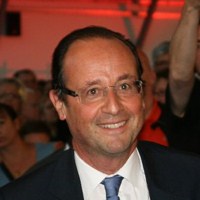French President Francois Hollande’s three-day visit to Tokyo, where he met with Japanese Prime Minister Shinzo Abe, resulted in major agreements on nuclear cooperation and joint development of military hardware. The summit, which also covered a range of other topics, reflected the noticeable improvement in recent years of the two countries’ already solid bilateral ties.
Despite often being rivals for foreign contracts, Japan and France remain closely bound through cooperation on advanced technologies. Indeed, the agreement to increase nuclear cooperation was not a total surprise considering that a French-Japanese consortium just won a lucrative $22 billion joint bid to develop Turkey’s second nuclear power plant on the Black Sea. During Hollande’s visit, both sides agreed to two pillars of future nuclear cooperation: first, an increase in cooperation on exports of nuclear technology and, second, cooperation on disposing of Japan’s spent fuel.
On the first point, both sides agreed to a five-year action plan to work together on supplying nuclear technology and infrastructure. Increased cooperation on nuclear exports is intriguing, as Japan and France are natural competitors in atomic trade. But Japan’s calculus has changed on this point, as Abe is aggressively pursuing a strong nuclear export agenda in light of Japan’s idle domestic nuclear reactors. While Abe’s party is pushing for these reactors to go back online, he also realizes that constructing new reactors in Japan is for the time being unthinkable.

